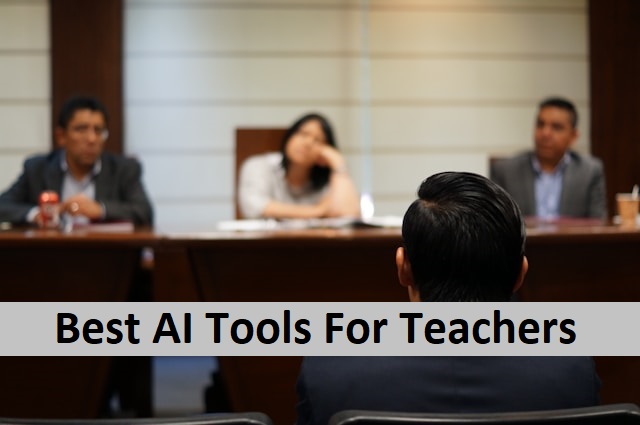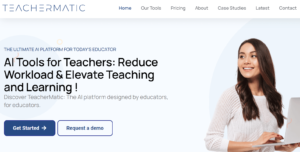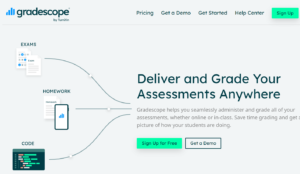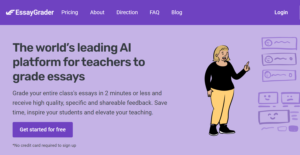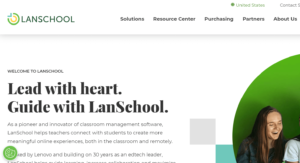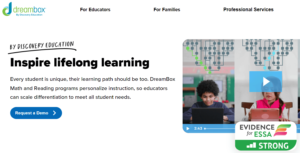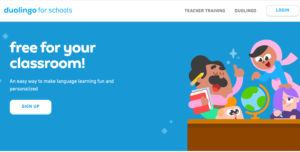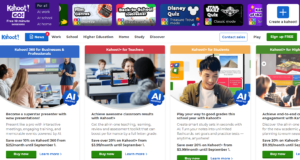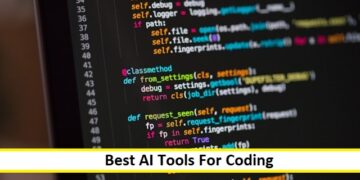As technology continues to evolve, AI has become an invaluable resource in the education sector, providing innovative tools that enhance the teaching and learning experience. These AI tools offer a variety of benefits, from streamlining lesson planning to providing personalized learning experiences, making them essential for teachers at all levels. Whether you’re a math teacher, an art teacher, or working in special education, there are AI tools designed specifically to meet your needs.
Understanding AI in Education
AI tools for teaching are software applications that utilize artificial intelligence to support various aspects of education, from lesson planning to student engagement. These tools leverage machine learning algorithms and data analytics to provide insights and automation that can significantly reduce the workload of teachers. By automating repetitive tasks and offering personalized learning pathways, AI is transforming traditional education into a more dynamic and responsive process.
Benefits of Using AI Tools in Teaching
Enhancing Personalized Learning:
One of the most significant benefits of AI in education is its ability to provide personalized learning experiences. AI tools can analyze student performance data and adapt lessons to meet individual learning needs, ensuring that each student receives the support they need to succeed.
Improving Administrative Efficiency:
AI tools can handle time-consuming administrative tasks such as grading, attendance tracking, and lesson planning. This allows teachers to focus more on teaching and interacting with students rather than getting bogged down by paperwork.
Facilitating Interactive and Engaging Learning Experiences:
AI-driven tools can make learning more interactive by incorporating multimedia content, gamification, and real-time feedback. This not only keeps students engaged but also helps them retain information more effectively.
AI Tools for Lesson Planning
Effective lesson planning is crucial for successful teaching, and AI tools can help simplify this process by providing tailored suggestions and resources.
1. Teachermatic – Best AI Tools For Primary Teachers
Teachermatic is an AI-powered lesson planning tool that helps teachers create comprehensive lesson plans quickly. It offers customization options, allowing teachers to align their lessons with curriculum standards. This tool is especially useful for primary teachers who need to create engaging and age-appropriate content.
2. Eduflow – Best AI Tools For High Teachers
Eduflow is an AI-driven platform that supports teachers in designing and managing interactive learning experiences. It is particularly beneficial for high school teachers who need to incorporate various learning styles and preferences into their lesson plans.
AI Tools for Grading and Assessment
Grading and assessment can be time-consuming, but AI tools can help automate these processes, allowing teachers to focus more on student interaction and feedback.
3. Gradescope – Best AI Tools For Math Teachers
Gradescope is one of the best AI tools for math teachers, offering automated grading of handwritten and digital assignments. It provides detailed feedback and analytics, helping teachers identify common student mistakes and areas that need improvement.
4. EssayGrader – Best AI Tools For English Teachers
EssayGrader is an AI tool designed for English teachers, simplifying the grading of essays and written assignments. It evaluates grammar, coherence, and content, providing students with constructive feedback to improve their writing skills.
AI Tools for Classroom Management
Managing a classroom effectively requires organization and the ability to handle diverse student behaviors. AI tools can support teachers in maintaining a well-structured and productive learning environment.
5. Classcraft:
Classcraft gamifies classroom management, turning behavior tracking into an engaging experience for students. This tool is especially useful for primary and high school teachers, as it encourages positive behavior through a reward system.
6. LanSchool:
LanSchool is an AI-powered classroom management tool that allows teachers to monitor student activity on digital devices. It’s ideal for high school and special education teachers who need to ensure students stay focused during lessons.
AI Tools for Personalized Learning
Personalized learning is key to student success, and AI tools are making it easier to tailor educational experiences to individual needs.
7. DreamBox:
DreamBox is one of the best AI tools for math teachers, providing personalized math lessons that adapt to each student’s learning pace. It is especially effective for special education teachers who work with students who require additional support in mathematics.
8. Duolingo for Schools – Best AI Tools For Language Teachers
Duolingo for Schools is an AI-driven language learning platform that offers personalized lessons in various languages. It’s an excellent tool for language teachers, providing real-time feedback and adapting lessons to meet the needs of each student.
AI Tools for Student Engagement
Engaging students is crucial for effective learning, and AI tools can make lessons more interactive and captivating.
9. Kahoot!:
Kahoot is an interactive quiz platform that turns learning into a game. It is one of the best AI tools for primary teachers, making it easy to create fun and competitive quizzes that engage younger students. It’s also popular among high school teachers for dynamically reviewing content.
10. Artivive – Best AI Tools For Art Teachers
Artivive is an AI tool that brings art to life through augmented reality. It’s one of the best AI tools for art teachers, allowing them to create interactive art experiences that can be viewed through a smartphone or tablet, adding a modern twist to traditional art lessons.
Challenges and Considerations
While AI tools offer numerous benefits, there are challenges and ethical considerations to keep in mind.
Adoption and Training:
Implementing AI tools requires time and effort for training. Teachers need to be comfortable with the technology to use it effectively.
Data Privacy:
AI tools often require access to student data, raising concerns about privacy and data security. It’s essential to choose tools that comply with data protection regulations and maintain the confidentiality of student information.
Over-reliance on AI:
While AI can assist with many tasks, it’s important not to rely on it entirely. Human judgment and creativity are still irreplaceable in teaching.
Conclusion
AI tools are revolutionizing the education sector, offering teachers powerful resources to enhance their teaching methods and improve student outcomes. Whether you are a special education teacher, a math teacher, or an art teacher, there are AI tools designed to meet your specific needs. By integrating these tools into your teaching practice, you can provide personalized learning experiences, streamline administrative tasks, and engage students in new and exciting ways. As AI technology continues to advance, its impact on education will only grow, making it an essential component of modern teaching.

